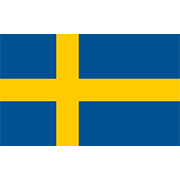Fiscal subject related
Fiscalization rules in Sweden require the usage of a control unit device. In accordance with some of the fiscalization requirements, a control unit must be retained in Sweden for at least 12 months after a cash register is sold, scrapped, or replaced.
Control units are required to store at least five years of control data, but if the unit reaches full capacity before this period, it is considered broken and may be replaced. Under Chapter 12, Section 14 of SKVFS 2009:2, businesses can purchase a new control unit, provided they comply with the 12-month preservation requirement for the old unit.
Authorities stress that control units are not to be emptied, ensuring that historical transaction data remains accessible during the retention period. Businesses must respect storage and replacement rules to avoid penalties and facilitate transparent record-keeping.
Other news from Sweden
Fisalization in Sweden: how to correct the wrong payment method recorded in the cash register
 Sweden
Author: Nikolina Basić
Sweden
Author: Nikolina Basić
We clariify if businesses have to issue a return receipt if a wrong payment method is recorded in a cash register? Read more
Subscribe to get access to the latest news, documents, webinars and educations.
Already subscriber? Login


Swedish Tax Agency Issues new amendments to Cash Register Regulations
 Sweden
Author: Nikolina Basić
Sweden
Author: Nikolina Basić
The Swedish Tax Agency has amended its cash register regulations (SKVFS 2025:8), effective October 1, 2025, updating rules on registration, malfunction reporting, and supervisory controls. Key changes include repealing certain provisions, requiring individual registration of each unit, and clarifying exemptions for customer-held devices. The Swedish Tax Agency has announced new amendments to its e... Read more



Sweden proposes a temporary VAT cut on food and bottled water starting in April 2026.
 Sweden
Author: Nikolina Basić
Sweden
Author: Nikolina Basić
Sweden’s Ministry of Finance has proposed cutting VAT on food and bottled water from 12% to 6% between April 1, 2026, and December 31, 2027, to ease household costs and support purchasing power. The measure, excluding alcohol and certain beverages, is aimed at countering inflation and awaits parliamentary approval. The Swedish Ministry of Finance has announced a proposal to temporarily reduce the... Read more



Swedish Tax Court Clarifies VAT Rules for EV Charging and Network Access
 Sweden
Author: Nikolina Basić
Sweden
Author: Nikolina Basić
The Swedish Tax Court’s Advance Notice No. 15-25/I clarified that both electricity supplied for EV charging and fixed network access fees are subject to Swedish VAT, as the place of supply is considered Sweden. The case involved a foreign EV charging app operator with no permanent establishment in Sweden, highlighting that domestic consumption triggers VAT liability regardless of the supplier’s location. Read more
Subscribe to get access to the latest news, documents, webinars and educations.
Already subscriber? Login


The Swedish Tax Agency announces Cash Register exemptions for Lotteries and games of skill at public events.
 Sweden
Author: Nikolina Basić
Sweden
Author: Nikolina Basić
As of January 1, 2026, the Swedish Tax Agency will exempt certain lotteries and games of skill at public events from mandatory cash register reporting. This new regulation applies to specific market traders and includes strict limits on the maximum stake and prize value for games of skill. The Swedish Tax Agency has issued new regulations (SKVFS 2025:6) granting specific exemptions from cash regis... Read more



Sweden e-invoice and ViDA implementation
 Sweden
Author: Nikolina Basić
Sweden
Author: Nikolina Basić
Sweden is preparing for the EU’s ViDA directive by considering a national approach to e-invoicing and digital VAT reporting, with the Confederation of Swedish Enterprise urging a public inquiry. The Swedish Tax Agency has also launched a nationwide survey to gather business feedback, open through June and July 2025. Sweden is preparing for new EU regulations under the VAT in the Digital Age (ViDA)... Read more



Do EV chargers have to respect cash register and fiscalization requirements in Sweden?
 Sweden
Author: Nikolina Basić
Sweden
Author: Nikolina Basić
In Sweden, EV chargers and other unmanned self-service systems are exempt from standard cash register fiscalization requirements. Printed receipts are only mandatory when transactions are processed through certified cash registers, which these systems typically do not use. Read more
Subscribe to get access to the latest news, documents, webinars and educations.
Already subscriber? Login

